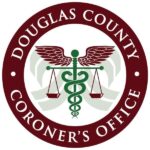
The Coroner’s Office is a statutory office, which is mandated to establish the cause and manner of death in compliance with Colorado Revised Statute 30-10-601 through 30-10-622, and has four main responsibilities, which are listed at the bottom of this page.
Responsibilities of the Coroner’s Office include:
Legal Identification – Identification methods may include body description, medical records, medical implants and appliances, surgical / radiology comparison, healed trauma, fingerprint comparison, DNA, dental records (odontology), and anthropology. The Douglas County Coroner’s Office does not use law enforcement resources for fingerprint comparisons; the MDI’s are trained and certified in fingerprint comparison. Legal identification includes physical anthropology. When exposed bones are discovered, it is the responsibility of the Coroner’s Office to identify human versus non-human remains, and if humans, who they are, and why the bones were left in that environment.
Establishing Cause of Death – Many citizens believe that the Forensic Pathologist is the only person who establishes a cause of death. However, the majority of deaths in Douglas County don’t require an autopsy and for those that do, the autopsy findings are only part of the investigation. According to the National Association of Medical Examiners (NAME), a well-run office should autopsy between 10-13% of all reported cases. The other 87-90% of the reported cases work out the cause of death by the highly trained Medicolegal Death Investigators (MDI) reviewing existing medical records, consulting with outside physicians, and deducing facts based on their education, training and experience.
Establishing Manner of Death – The need to assign responsibility for human death is without doubt older than history and has found expression in both religious and judicial language. However, the profession today has agreed upon a four-part classification scheme based on long-standing principles: Natural, Accident, Suicide, and Homicide. When a reasonable classification cannot be made, undetermined is used.
Legal Notification – Requires identifying who is legally related to the decedent and who is the legal next of kin. When the Death Certificate is issued by the Coroner, marital standing is important. It is the Coroner’s responsibility to make sure the death notification is completed. In Douglas County, the Coroner’s Office staff personally makes all death notifications supporting the family through the grieving process.